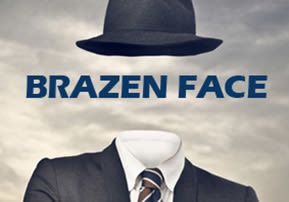
Brazen Face
The morning brachot seem to be setting up a clear connection between 'brazen faced' people and evil people.

Part 4 of “The Erev Rav“
The phrase ‘brazen-faced’ is key in tracking down references to the Erev Rav throughout the writings of our holy sages.
In our morning blessings, there is a specific bracha we recite as follows:
“May it be the will before You, Hashem, my G-d and the G-d of my forefathers, that you rescue me today and every day from those who are brazen-faced and from brazen-facedness, from a person who is evil, from a companion who is evil, from a neighbor who is evil, from a mishap that is evil, and from a spiritual impediment which is destructive, from legal proceedings that are harsh, and from a litigant who is harsh, whether he is a member of the covenant or whether he is not a member of the covenant.”
The morning brachot seem to be setting up a clear connection between the character trait of being ‘brazen faced’ people and evil.
In our Yom Kippur davening, we begin the Vidui, or confession of our sins, with the following statement:
“…do not ignore our supplication. For we are not so brazen-faced and stiff-necked as to say before You, Hashem, our G-d, that we are righteous and have not sinned, for indeed, we and our forefathers have sinned.”
Our sages are making a clear link between the negative character trait of ‘brazen-facedness’ and the negative character traits of perfectionism, which often leads people to a place where they find it very hard to admit to their sins, or to repent for them.
Psalm 37
Now, let’s go to the Zohar II, 45b, where Rabbi Yitzhak explains that Psalm 37 is talking all about the Erev Rav:
“Rabbi Yitzhak opened and said (Psalms 37:1) “Do not pay attention to the deceivers (mereim)“. Who are the ‘deceivers’? For it is not written sinners or evildoers, but deceivers, for they deceive themselves, and those who befriend them.
“Rabbi Yehuda said: Deceivers, get away from the deceivers, so that you will not befriend yourself with their acts, and then be part of their sins. Come and see: If there was no Erev Rav, those that united with Israel, that act (ie, making the Golden Calf) would not have been done, and all those who died from Israel would not have died, and all that was caused upon Israel would not have been caused. And come and see that act and that sin indeed caused exile for Israel….
“Now that act was done, it caused everything, it caused the yoke of other nations, it caused that those tablets were broken, it caused a few thousand to die among Israel, and all this because of associating with the Erev Rav that went along with them.”
So, telling lies is another clear Erev Rav character trait, and (crucially), people with pronounced Erev Rav tendencies will lie to themselves, most of all, especially about the need for them to change, or to acknowledge their own flaws and imperfections.
What else can we learn about the Erev Rav from Psalm 37?
King David tells us in that psalm three times: “Do not compete with evildoers!”
So, competition and comparison are other key Erev Rav character traits.
King David also advises us to: “wait silently for [the salvation of] Hashem” and to ‘”desist from anger” and to not compete with the evildoers because it only brings harm – to us.
King David continues: “The wicked man plots against the righteous person, and gnashes at him his teeth.” The Erev Rav are spiteful and vindictive, and are constantly thinking of ways to ‘get back’ at the righteous people in their lives.
“Borrow does the wicked, but repays not.” Another Erev Rav character trait is failing to abide by agreements we’ve made, or when we fail to respect other people’s rights, boundaries or property.
“The mouth of the righteous man utters wisdom, and his tongue speaks justice (mishpat). The Torah of his G-d is in his heart, falter not will his footsteps. The wicked one watches the righteous one, and seeks to kill him. But Hashem will not forsake him to his hand, nor let him be condemned when he is judged.”
In this passage, King David explains that when we’re really acting like a sincerely righteous Jew, that means that we’ve really internalized our Torah learning – it’s in our heart – and we’re not just going through the external motions of being pious.
By contrast, it’s a negative Erev Rav character trait to ‘dress the part’ of a religious Jew, without really acting it or feeling it.
Another negative Erev Rav character trait is to judge other Jews harshly and unfairly, and to accuse them of things they never did, and of bad intentions that they never had. This is the basis of speaking lashon hara, which the Vilna Gaon explained earlier on is a key Erev Rav trait.
We’re taught that when a Jew opens his mouth about his fellow Jew’s shortcomings and bad deeds, then that Jew’s file is immediately opened up in Heaven as well, and the person is judged, potentially unleashing untold problems for him. But here, King David gives us a promise: Hashem will not let the righteous person be condemned, when he’s been ‘judged’ in this sort of way.
The last thing we will take from Psalm 37 is King David’s wisdom about what happens to the Erev Rav: “I have seen a wicked man, powerful and well-rooted like a native tree that is ever fresh. Yet he vanished, and indeed! He was no more; I sought him, but he was not to be found.”
Again, before Rebbe Nachman and his lesson of Azamra! (Likutey Moharan I:282) came on the scene, to tell us that judging every Jew favorably could tip them into the scale of merit, this verse was normally expounded to mean that the wicked person themselves would disappear in entirety.
But Rebbe Nachman opened a path to a different interpretation of this verse, namely that the wickedness contained within the person would disappear.
This distinction is crucial, and we will discuss it in more detail later on.
In the meantime, let us recap what we have learnt about Erev Rav character traits from Psalm 37:
* Lying (including to themselves)
* Competing with others and comparing themselves with other people
* Spite and vindictiveness
* Failing to respect agreements, boundaries, or other people’s property and rights;
* ‘Acting’ religious, instead of really ‘being’ religious
* Judging other Jews harshly, criticizing others, and speaking evilly about other people
* Failing to acknowledge the truth
Next week, we will explore some more of what Rebbe Nachman writes about the Erev Rav.
* * *
Check out Rivka Levy’s new book The Happy Workshop based on the teachings of Rabbi Shalom Arush.




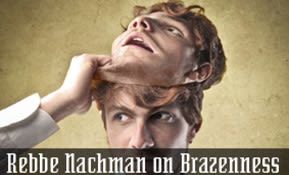
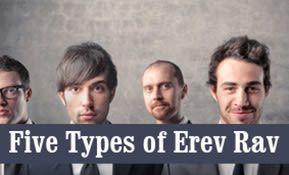


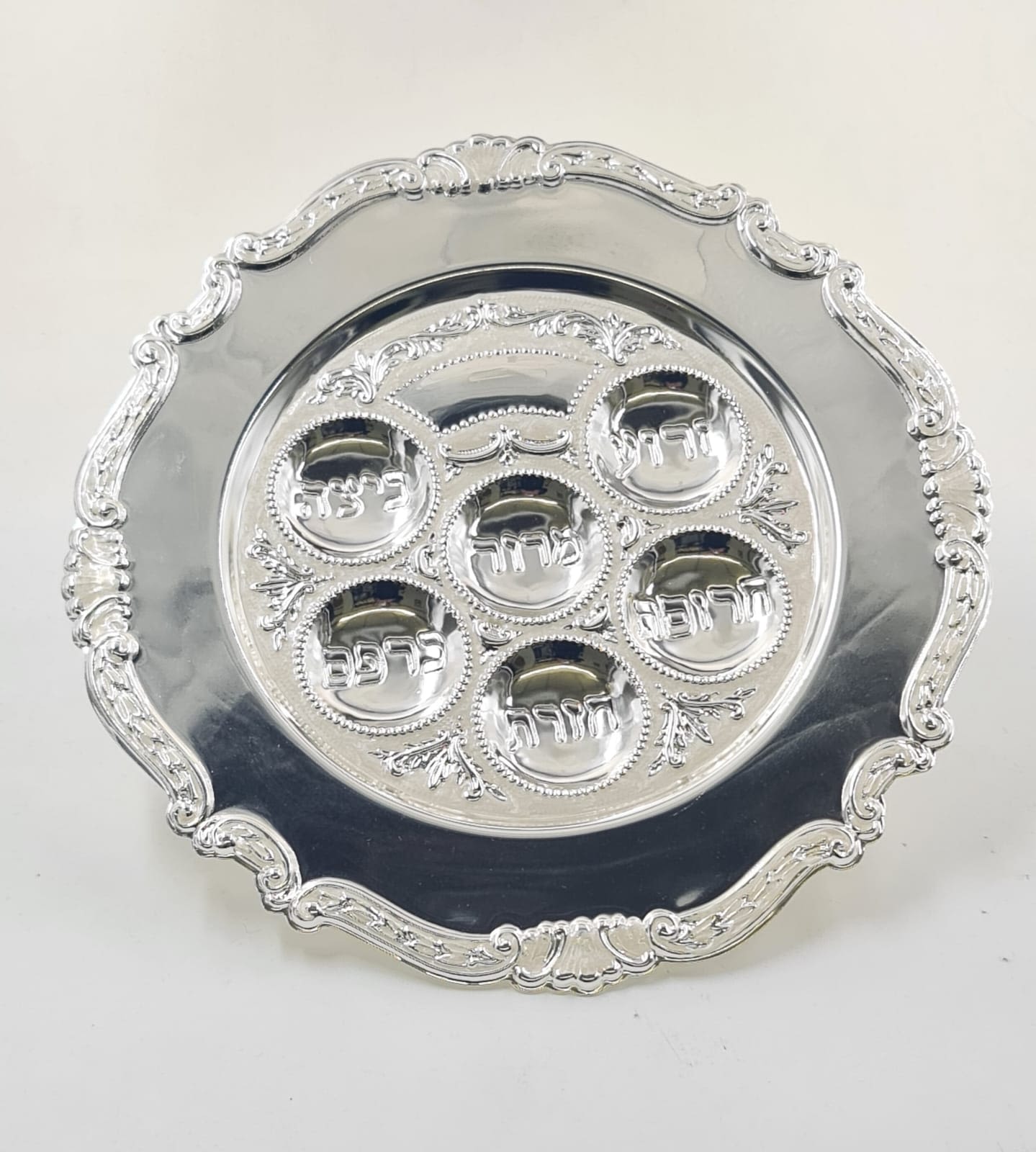
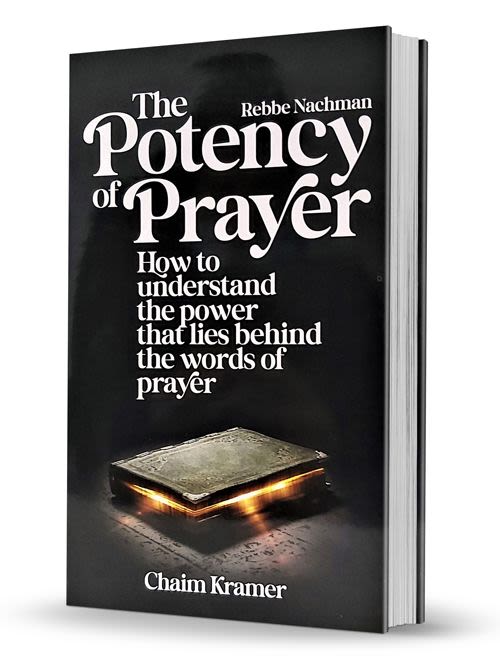



Tell us what you think!
Thank you for your comment!
It will be published after approval by the Editor.